The phrase “How God Stopped Being the Creator” refers to the thinking of many people today, including most scientists. This post looks at how it happened that they currently do not think of God as the Creator of the universe, even though a belief in a Creator God used to be common. This is actually a big subject, worthy of its own book. This post unfortunately will fly through some topics I’d like to dwell on, even though it winds up being long. But it will lay out the bare bones of what happened–because our current scientific culture is, like everything else, a product of history.
I’m mentioning this now because it’s important to recognize as we go forward that an increasingly atheistic orientation of science isn’t a product of science steadily progressing more and more, finding less and less room within its discoveries for God. Because that has never been entirely true–and certainly hasn’t been true in the last century or so of scientific discovery.
The oldest recorded history of science comes from astronomical observations of ancient Sumeria, records starting roughly at 3500 B.C. Which is about as old as the first writing itself (though sites like Stonehenge in various pre-literate societies that are concerned with astronomy are even older).
The Sumerians and the Babylonians after them noticed numerous patterns regularly occurring in heavens. And even though they saw that these patterns are regular and orderly, they usually attributed these actions to various gods and goddesses, whose motivations could be and often were in conflict with one another. Which should have caused the heavens to behave irregularly, but does not (though sometimes they seem to, such as when a new comet passes by Earth). Though sometimes these ancients saw order in the world of the gods being imposed by a chief of the gods (An/Anu, later Marduk) or a council of gods, working together, their view of the universe allowed for a level of chaos in natural law (as should have been seen in astronomical observations) that’s actually foreign to nature.
The Persians, who took control of Babylon in 539 BC, believed in a single good God, Ahura Mazda, responsible for the order in the universe. While the evil “God” Ahriman was likewise responsible for chaos, destruction, and death (anything that ever goes wrong), with the two Deities locked in struggle since the beginning of the universe (both served by a host of lesser spirits).
The Ancient Greeks who were in contact with both Mesopotamia and Ancient Egypt, learned basic principles of mathematics from them, studied their astronomy, and at first shared with them a polytheistic worldview of a universe inherently in conflict with itself, as seen in the gods and goddesses in Homer’s epic poems quarreling with one another over which person on earth they intended to bestow favor. (The Greeks also ended up adapting Persian concepts of dualism, applying them mainly to notions of mind/spirit and real/ideal, rather than seeing dualism as limited to that of good verses evil.)
The Greek philosophers soon began to reason beyond what they had learned from the civilizations that came before them and branched out in their thinking in many diverse directions. Many questioned polytheistic religious ideas.
Some wrote as if there were only one God or a primary god who mattered more than all the others (e.g Xenophanes of Colophon and Aristotle’s discussion of a divine prime mover, among others), while others questioned the existence of all the gods either partially or wholly.
To summarize a complex issue, the most important concept of ancient Greek philosophers that relates to atheism is the concept of atomism, which held that the universe was composed of accidental encounters of particles that could not be broken down any further (“atom” comes from Greek words meaning “not divisible” or not consisting of any simpler components). As for the origin of the atoms themselves, they were seen as having always existed, though the form they accidentally gave the universe we experience now (by crashing into one another randomly) at one time did not exist (note that some Eastern Religions such as Jainism also developed similar concepts of an eternal universe).
Theists who believed in definite gods had usually believed that at some point in history that God or the gods created all that exists. The first atheistic answer to this presumption-of-creation was simple–no, the universe has actually existed forever and always had the ability to simply arrange itself by (also eternal) random forces. Epicurus, who did not actually teach the gods were non-existent, held that they were meaningless. They did not create the world, offer no guidance in life, and do not judge the dead–since there is no afterlife. This is essentially an ancient version of modern atheism.
The official adoption of Christianity in the Roman Empire some seven centuries later would solidify the idea that a single Deity was responsible for the order in the universe (as expressed in the Hebrew Bible centuries before Xenophanes’ birth). God’s plans may be beyond our understanding and may be subject to change if God so wills it, but essentially followed order in the minds of pre-Renaissance Christian thinkers such as Augustine and Aquinas–order derived from the rational nature of the mind of God. Ancient Greek philosophers were reinterpreted as having spoken about Christian concepts before Christ was born, through the indirect revelation of God through nature (which sometimes certainly seems to be true, in my opinion–but other times not so much).
Medieval times brought a tremendous loss of ancient knowledge as mostly illiterate Pagans tore down the structures of the Western Roman Empire. But the Medieval period eventually produced the first universities in Europe, which were among the first anywhere in the world. These benefited from some copies of ancient Greek texts preserved by Islamic scholars (and to a certain degree, Islamic thoughts on science) and contrary to popular belief, taught that the Earth is round. And though most Medieval thinkers believed that the Earth was the immovable center of the universe, some challenged that idea (i.e. Nicole Oresme). Roger Bacon and William of Ockham (both friars), among other thinkers of the late Middle Ages, laid some of the intellectual foundation that paved the way for the development of modern science.
Renaissance thinkers however are responsible for rediscovering Ancient Greek and Roman texts in a major way and saw themselves as causing the spirit of ancient times to be “reborn” into a new age (“renaissance” means “rebirth” in French). They generally held Medieval scholars in contempt (though they borrowed some of their best ideas) and are partly responsible for the fact that to this day many people don’t know how advanced the thinking of many Medieval philosophers actually was.
The Reformation also contributed to a disdain for the Medieval, since Protestants believed the Medieval Catholic church had lost its way–and a dedicated study of the text of the Bible (a text from ancient times) could restore true religion. Just as Renaissance philosophers saw the thinking of ancient times as restoring true freedom of thought and artist expression. (Note I would agree the Medieval Catholic church was in many ways off track–I’m definitely a Protestant. But everything Medieval was not nearly so bad as some people claimed both then and now.)
A real clash between scientific discovery and a religious institution occurred over the Geocentric model (the Earth at the center of the universe or at least Solar system) verses the Heliocentric model (the sun at the center), leading to the famous trial of Galileo Galilei. But note this clash can rightly be seen as over one ancient Greek text on the nature of the universe (Ptolemy’s), which was officially adopted by the Catholic Church (yes, in part because they believed it was more compatible with the Bible), verses astronomical observations that lined up with another set of ancient Greek observations (by Aristarchus of Samnos).
Heliocentricism won because of the data gathered to support it was much more simply explained from the point of view of the Earth orbiting the sun rather than the other way around. This led practically all Christians to eventually adopt the point of view that any of the relatively few Biblical references to the sun moving across the sky are merely referring to what it looks like from the ground, not to a Geocentric model.
Advancements in the methods of observation and mathematical methods led to the discoveries of Isaac Newton, who revolutionized four fields of study (more than any other scientist before or since): optics, calculus, laws of motion, and laws of gravity. Newton saw the universe as a finely crafted watch, created by God but now running by its own mechanism, the laws of nature running from the past forward across the entire universe, operating without any direct interference by God. Newton very much believed in a personal God, by the way, as did almost all other scientists of his era.
Newton’s discoveries (and other scientific discoveries of that time) would transform how people thought about the universe. The concept of a single orderly God expressing himself in nature was well over two thousand years old in Newton’s time–but the Biblical concept of an orderly God always allowed for God to make exceptions, to perform a miracle when and where he chose. Once Newton’s works captured the popular imagination of his day, the miracles of the Bible were mocked as impossibilities and many Europeans began to think of God as being like the Aristotelian “prime mover,” with the rest of the universe being strictly determined by the laws of nature working since the initial beginning of time. The “prime mover”began the universe and established that it has order, but then had no further interaction with it afterwards, certainly not ever working any miracles, because miracles are a violation of natural law and thus impossible (meaning Christ had never resurrected–an idea in opposition to Christianity). As a religious position, this was called “Deism,” a view shared by U.S. president Thomas Jefferson.
Though there also was a surge in atheism around this time–atheists of this period simply affirming like the ancient atomists that the universe had existed forever, that it required no prime mover since it had always been running. While stating that a belief in God contributed positively to human morality, the French philosopher Voltaire mocked religion, especially Christianity, especially the miracles of the Bible, in thousands of essays that contributed to a surge in Europeans concluding there are no gods or God at all.
Voltaire once mocked the miracle of the sun standing still in Joshua chapter 10 on the basis that the sun standing still might seem plausible to a bunch of ignoramuses who thought the sun was small and passed through the Earth’s atmosphere, but “modern” science has discovered that the Earth actually rotates on its axis to produce days, so Joshua’s miracle would require (as far as Voltaire was concerned), the entire planet to come to a sudden halt, an event the entire world would have been aware of, and which due to the inertia Newton discovered, would cause everything on the planet to go hurtling forward into a nasty high-speed crash (like when you suddenly mash down hard on automobile brakes).
Some but not all Christians (and Jews) attempted to distance themselves from the idea of miracles as much as they could at this time, attributing blessings to “providence”–the laws of God working in our favor at any moment–rather than any kind of direct intervention by the Almighty. But they strongly maintained that the universe was inexplicable without God creating the order of the universe in the beginning (via the laws of nature).
Other believers strongly maintained miracles were a reality in nature and sometimes cited the diversity of life as a sign of God working miraculously with plants and animals. And of course, nothing in the laws of nature discovered by Newton directly addresses anything to do with life, so this was a point atheists of this period (the “Enlightenment”) could not directly answer.
Though in fact the Romantic literary movement after the Enlightenment probably did more to convince people of the truth of religion than any specific line of reasoning against atheism did. Romanticism stressed emotion and the importance of individual experience (and was a reaction against the rationality of people like Voltaire). During this time (up to about 1850), Christian religious revivals that stressed the importance of an individual being convicted of sin and coming to Christ through a personal salvation experience swept through the United States and the UK (though more in the US).
But in 1859, Charles Darwin published The Origin of the Species, the book that argued that laws similar to Newtonian laws operated within life–that the diversity of nature isn’t a miracle at all, but simply a natural occurrence, everything about life deterministic (once the laws of nature were understood) and non-miraculous. Some Christians in response doggedly held on to defending the concept of a prime mover, maintaining that life itself had to come from somewhere, as did the basic organization of the matter in the universe. But other thinkers were already extrapolating the idea that if species could have a strictly “natural” origin, so could everything else.
In 1896, the Austrian physicist Ludwig Boltzmann declared that random fluctuations in particles could eventually produce the world we know through nothing but variations of matter through sufficient time (Boltzmann’s theory has a significant flaw, something called a “Boltzmann brain,” which I’ll talk about in a later post). This notion was much like that the ancient Greek atomists–an eternal universe that eventually made itself what it is today via random chance. Which made the idea of a prime mover unneeded (since the universe was presumed to have always existed).
Around 1900, while many Christians were not engaged in the debate over the nature of reality at all (being more convinced by personal experiences of God’s existence than interested in reason–or believing that science and faith operate in separate spheres from one another), scientists as an overall group felt increasingly certain that they understood all the mysteries of the universe, that all was definitely self-creating, with only a tiny handful of issues to mop up (such as the observation of Mercury’s procession of perihelion not quite matching what Newtonian physics indicated it should be).
That’s when the idea that the God of the Judeo-Christian tradition has an important role in the making of the universe died for most intellectuals. It’s this period that also planted the idea that scientific progress is eliminating more and more “space” for God to operate, that knowledge continues to grow unchecked–and less and less about the universe is mysterious.
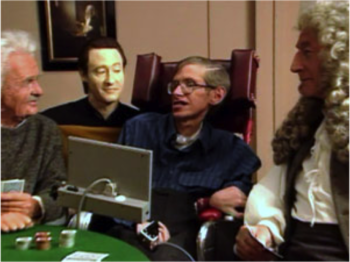
Data, Newton, Einstein, and Stephen Hawking–where the history of science and sci-fi meet.
But by 1920 or so, both relativity and quantum mechanics had been discovered (Albert Einstein was crucial to both). These scientific realities are actually in profound contradiction with one another as to whether the universe is essentially random or essentially deterministic. Literally no human being knows how they are supposed to fit together for certain–and scientists have not been able to figure this out for over 100 years. (Stephen Hawking in his book The Grand Design speculated that Relativity and Quantum Mechanics perhaps never will be reconciled with one another).
Relativity also shows that any point of reference is as good as another, so in fact the Planet Earth is as much the center of the universe as any other place–meaning it is not really incorrect to say the sun revolves around the Earth and the Earth stands still–this is actually true if you make Earth your reference point–a completely legitimate way to think according to Relativity. (A point of view completely unanticipated in the days of Newton).
And time does not have a single clock that the entire universe answers to, as per Newtonian thinking. In fact, time can and does flow more rapidly in some places than others. So for the miracle in Joshua 10 to be true, all that needed to happen was for time to flow slowly in the world outside of where Joshua’s army fought–which would freeze the apparent position of both the sun and the moon in the sky (both of which are mentioned in Joshua 10)–and which would produce an effect that no other part of the planet would be aware of. Voltaire’s mockery is dated–the miracle makes more sense now, scientifically speaking, than when Voltaire penned his attack.
Quantum mechanics asserts a certain level of randomness is part of the universe, which means highly improbable events referenced as miracles in the Bible don’t actually violate the strictly deterministic laws of physics (because at some level, they are not strictly deterministic). The Resurrection is no longer an impossibility that would run in violation of universal time (as Voltaire and others saw it), but is actually allowable under the known laws of physics–if every particle in Jesus’ body just happened to arrange itself just right. (Though this is extremely, extremely improbable in terms of particles simply rearranging themselves without a purpose or plan, quantum mechanics actually scientifically allows for this kind of miracle.)
And the ancient atheistic notion that the universe always existed? Cosmologists have demonstrated that this universe had a definite beginning. While their timeline does not match that of Young Earth Creationists, let’s not miss the key point that the simplest and most logical way for the universe to exist for an atheist–that it always been around–has mostly been eliminated from scientific discussion due to observations of the universe (the Big Bang et al).
While science has made enormous gains in knowledge and that knowledge has been applied to technology that affects our lives every day, basic concepts of how the universe works, what it’s made of, where did it come from? are actually more mysterious today than they were in 1900 (from the point of view of what scientists know that they don’t know).
Serious discussion of God as a Creator has been eliminated from the minds of most modern scientists by a chain of events that are almost an accident of history. Surprisingly perhaps, it actually makes more sense today, much more, based on the most recent science, to propose that the universe had a Creator with a purpose and will, than seemed to be true over a century ago. Or even than seemed to be true in the days of Newton.
The rest of the posts in this series will continue to demonstrate why the idea of God makes sense–why it’s clearer in terms of explaining the universe we see than the concept of a self-generating cosmos.
So what are your thoughts on the history of science or related topics? Please comment below.
 In science fiction and fantasy, books are often more concept-driven than character relationship-driven, which means that as authors, we can avoid the subject by relying on plots that steer far away from sex as possible. The readers tend to expect more of us as Christians in the speculative genre, as evidenced by the incident above. But as sex is a very human condition, sometimes it canât be danced around. What are we supposed to do?
In science fiction and fantasy, books are often more concept-driven than character relationship-driven, which means that as authors, we can avoid the subject by relying on plots that steer far away from sex as possible. The readers tend to expect more of us as Christians in the speculative genre, as evidenced by the incident above. But as sex is a very human condition, sometimes it canât be danced around. What are we supposed to do?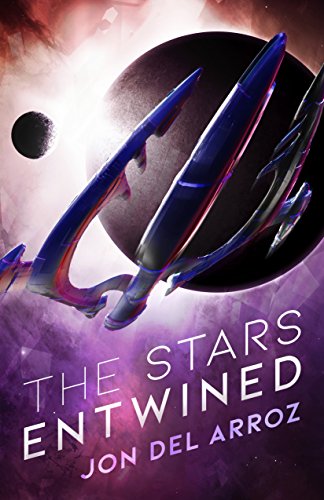 I tackled the sex topic in my most recent novel, The Stars Entwined. Thereâs a heavy romantic component to it (spoilers), and actually, the sex in the book is so crucial to the plot and concept, it actually canât be removed without heavily detracting from the book. I made a twist around it, though—-which is an alien culture where fornication and divorce are biologically impossible. Sex was intended by God to be an act of pure intimacy and love between husband and wife, and that is all that can possibly exist in this culture that did not have such matters corrupted by Satan and human sin. The result is both a compelling science fiction concept and highly-charged romance for readers to relate to charactersâ very real human conditions as characters become besotted with one another.
I tackled the sex topic in my most recent novel, The Stars Entwined. Thereâs a heavy romantic component to it (spoilers), and actually, the sex in the book is so crucial to the plot and concept, it actually canât be removed without heavily detracting from the book. I made a twist around it, though—-which is an alien culture where fornication and divorce are biologically impossible. Sex was intended by God to be an act of pure intimacy and love between husband and wife, and that is all that can possibly exist in this culture that did not have such matters corrupted by Satan and human sin. The result is both a compelling science fiction concept and highly-charged romance for readers to relate to charactersâ very real human conditions as characters become besotted with one another. Jon Del Arroz is the leading Hispanic voice in science fiction. He is a multi-award nominated author, popular blogger, and journalist. He contributes to The Federalist and Milo Yiannopoulosâ Dangerous.com. In the summer of 2017, Superversive Press released his YA Steampunk novel, For Steam And Country, to critical and reader acclaim. His most recent novella, âGravity of the Gameâ is an exploration of baseballâs future as humanity expands to the stars. His triumphant return to Military Science Fiction comes on March 20th, 2018, with the release of his new interstellar war epic, The Stars Entwined. He releases monthly short fiction and more on his Patreon.
Jon Del Arroz is the leading Hispanic voice in science fiction. He is a multi-award nominated author, popular blogger, and journalist. He contributes to The Federalist and Milo Yiannopoulosâ Dangerous.com. In the summer of 2017, Superversive Press released his YA Steampunk novel, For Steam And Country, to critical and reader acclaim. His most recent novella, âGravity of the Gameâ is an exploration of baseballâs future as humanity expands to the stars. His triumphant return to Military Science Fiction comes on March 20th, 2018, with the release of his new interstellar war epic, The Stars Entwined. He releases monthly short fiction and more on his Patreon.


































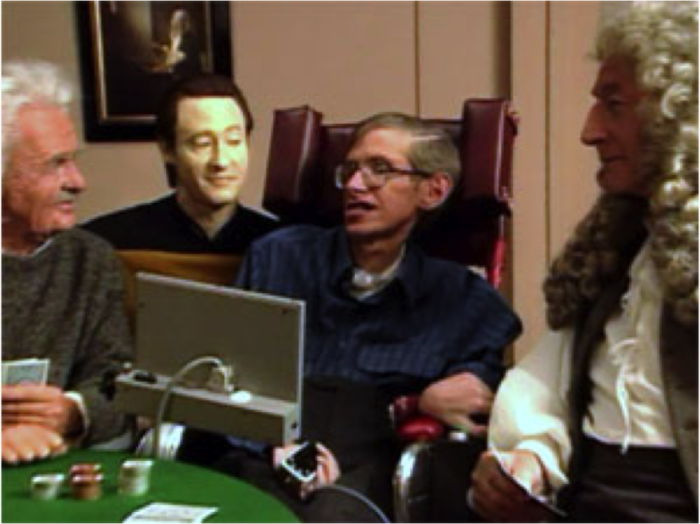

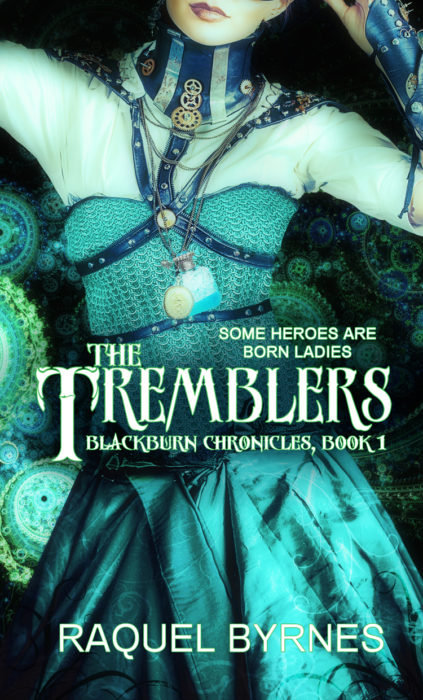

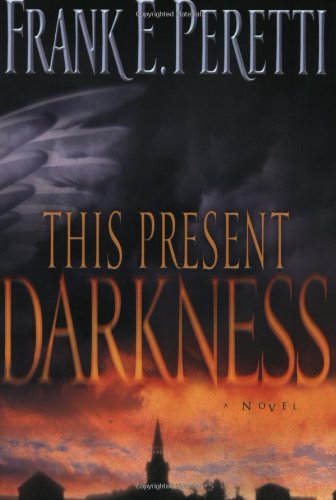
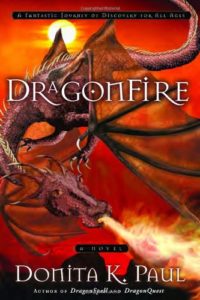 In the not too distant past, we’ve seen such trends as dragon tales, illustrated by Eragon by Christopher Paolini, The Dragonriders of Pern series by Anne McCaffrey, and Dragon Keeper by Robin Hobb. In Christian fiction dragon stories and their success—books such as the Dragons in our Midst series by Bryan Davis and The DragonKeeper Chronicles by Donita Paul—had much to do with opening up traditional publishers to speculative fiction
In the not too distant past, we’ve seen such trends as dragon tales, illustrated by Eragon by Christopher Paolini, The Dragonriders of Pern series by Anne McCaffrey, and Dragon Keeper by Robin Hobb. In Christian fiction dragon stories and their success—books such as the Dragons in our Midst series by Bryan Davis and The DragonKeeper Chronicles by Donita Paul—had much to do with opening up traditional publishers to speculative fiction Among the various trends, dystopian fiction factored heavily for a time. Certainly The Huger Games series by Suzanne Collins and the Divergent series by Veronica Roth have received the most attention, possibly because of their successful movies that followed the publication of the books. But the resurgence of this particular trend might have begun with the City of Ember series by Jeanne DuPrau. In Christian fiction, Jill Williamson capitalized on this trend with her own dystopian, The Safe Lands Series.
Among the various trends, dystopian fiction factored heavily for a time. Certainly The Huger Games series by Suzanne Collins and the Divergent series by Veronica Roth have received the most attention, possibly because of their successful movies that followed the publication of the books. But the resurgence of this particular trend might have begun with the City of Ember series by Jeanne DuPrau. In Christian fiction, Jill Williamson capitalized on this trend with her own dystopian, The Safe Lands Series. The thing I find interesting is that each of these trends seems to have a beginning with some book that did not follow a trend. Either that, or one particular series, like the Harry Potter series, seems to have broken the mold, so that few, if any, books of like kind surface. My guess is that readers will all too quickly identify similar books as knock-offs, even if they aren’t.
The thing I find interesting is that each of these trends seems to have a beginning with some book that did not follow a trend. Either that, or one particular series, like the Harry Potter series, seems to have broken the mold, so that few, if any, books of like kind surface. My guess is that readers will all too quickly identify similar books as knock-offs, even if they aren’t.




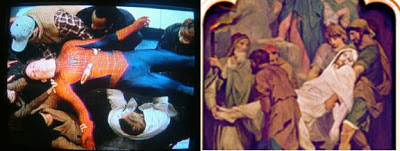
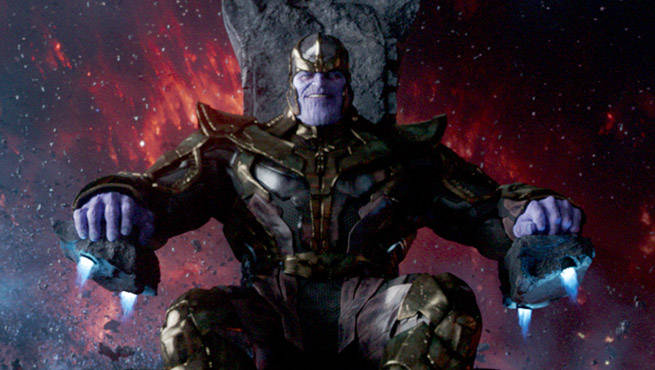
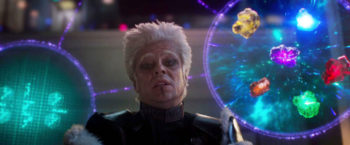

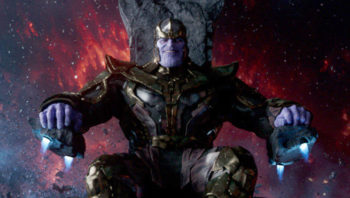



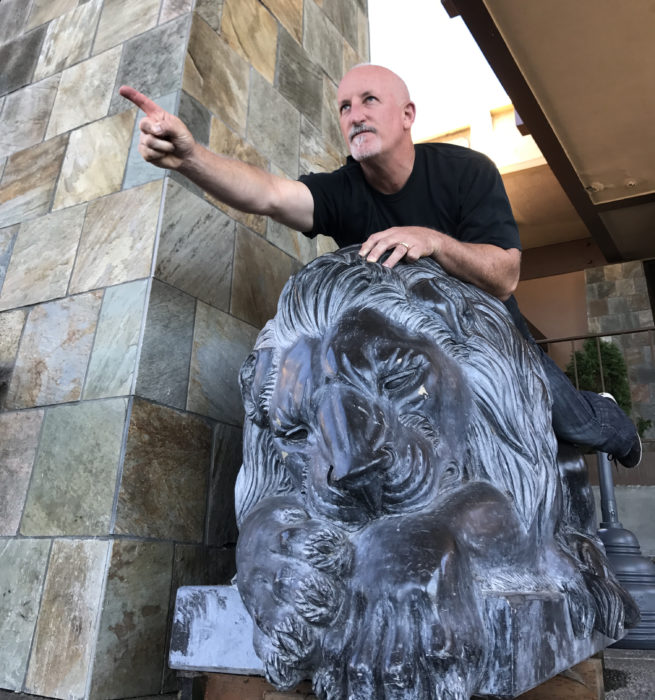
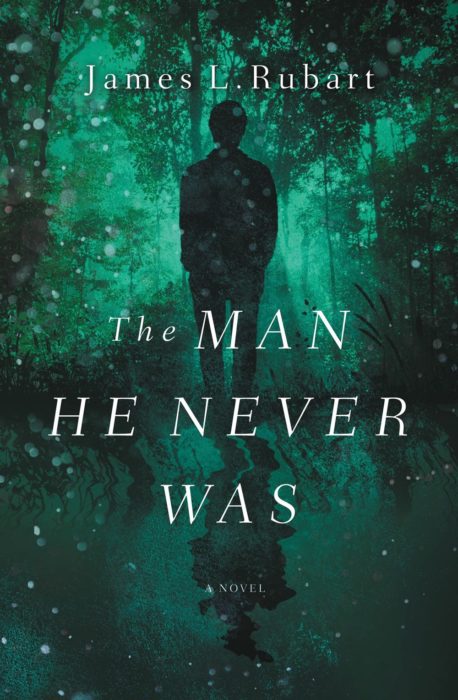

 But what about the great movies made from great books? After Lord of the Rings and Harry Potter, where do we go? I mean, the effort to capture the seven Narnia stories met with little success and a good deal of criticism. Fantastic Beasts and Where to Find Them by J. K. Rowling seems to have been largely ignored, though it is a stellar movie.
But what about the great movies made from great books? After Lord of the Rings and Harry Potter, where do we go? I mean, the effort to capture the seven Narnia stories met with little success and a good deal of criticism. Fantastic Beasts and Where to Find Them by J. K. Rowling seems to have been largely ignored, though it is a stellar movie.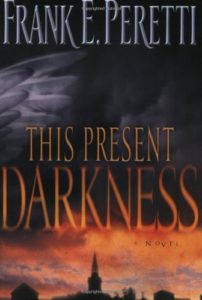 Will Christian speculative fiction follow?
Will Christian speculative fiction follow?
 And if authors approach the challenge creatively, there are a number of ways to give teen characters a loving family life while still sending them on an unsupervised adventure. The most obvious is to create a necessary separation between the character and his or her family. This can take the form of boarding school, like in the Sentinel trilogy by Jamie Foley; summer camp, as Amy C. Blake used in The Trojan Horse Traitor; or an institution put in place by the government, such as The Hunger Games. In my novel, Common, the main character is separated from her ma when she is banished from the kingdom and her mother canât accompany her due to poor health. In The Rose and the Wand by E.J. Kitchens, a curse from a magic mirror transports the main character away from her family, forcing her to find her way back. The possibilities are endless!
And if authors approach the challenge creatively, there are a number of ways to give teen characters a loving family life while still sending them on an unsupervised adventure. The most obvious is to create a necessary separation between the character and his or her family. This can take the form of boarding school, like in the Sentinel trilogy by Jamie Foley; summer camp, as Amy C. Blake used in The Trojan Horse Traitor; or an institution put in place by the government, such as The Hunger Games. In my novel, Common, the main character is separated from her ma when she is banished from the kingdom and her mother canât accompany her due to poor health. In The Rose and the Wand by E.J. Kitchens, a curse from a magic mirror transports the main character away from her family, forcing her to find her way back. The possibilities are endless! An avid reader practically since birth, Laurie Lucking discovered her passion for writing after leaving her career as an attorney to become a stay-at-home mom. When she gets a break from playing superheroes and driving windup cars, she writes young adult fantasy with a strong thread of fairy tale romance. Her debut novel, Common, released in February from Love2ReadLove2Write Publishing, and her short story, âThreshold,â was published in a Fellowship of Fantasy anthology titled Mythical Doorways. Laurie is the Secretary of her local ACFW chapter and a co-founder of Lands Uncharted, a blog for fans of clean young adult speculative fiction. A Midwestern girl through and through, she currently lives in Minnesota with her husband and two young sons. Find out more by visiting Laurie’s social media sites:
An avid reader practically since birth, Laurie Lucking discovered her passion for writing after leaving her career as an attorney to become a stay-at-home mom. When she gets a break from playing superheroes and driving windup cars, she writes young adult fantasy with a strong thread of fairy tale romance. Her debut novel, Common, released in February from Love2ReadLove2Write Publishing, and her short story, âThreshold,â was published in a Fellowship of Fantasy anthology titled Mythical Doorways. Laurie is the Secretary of her local ACFW chapter and a co-founder of Lands Uncharted, a blog for fans of clean young adult speculative fiction. A Midwestern girl through and through, she currently lives in Minnesota with her husband and two young sons. Find out more by visiting Laurie’s social media sites:


